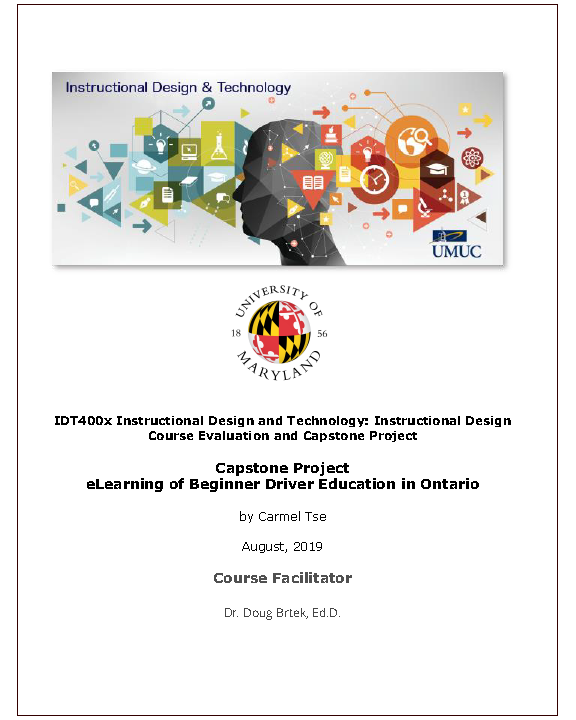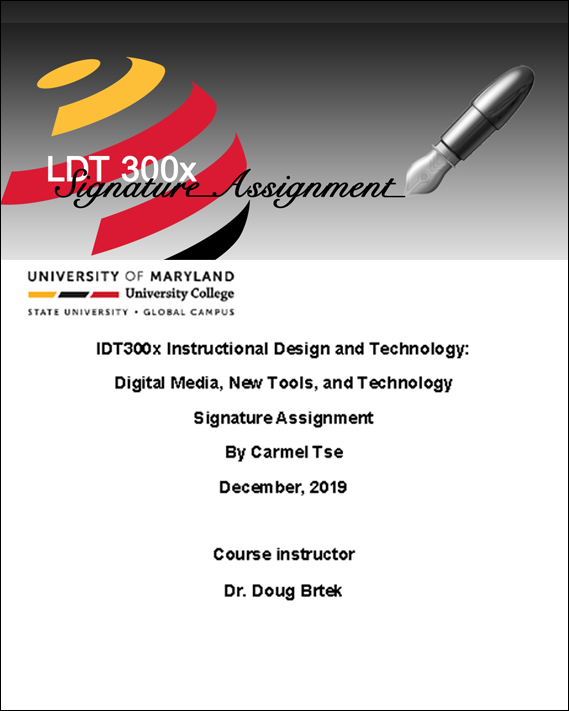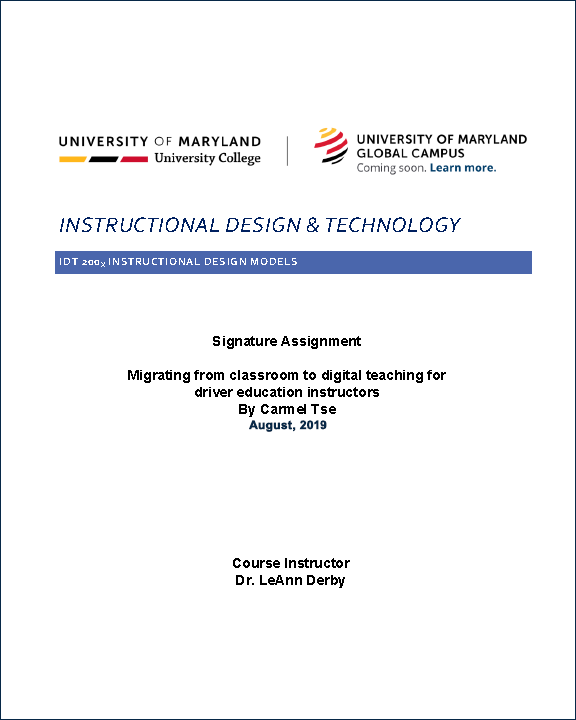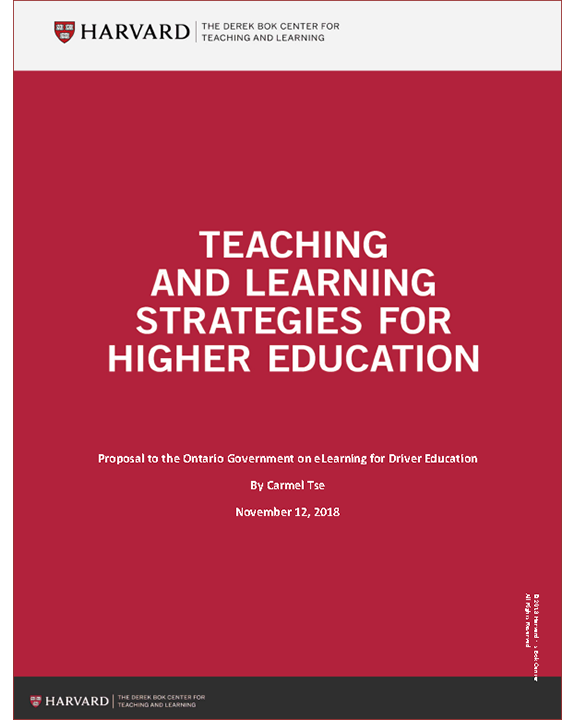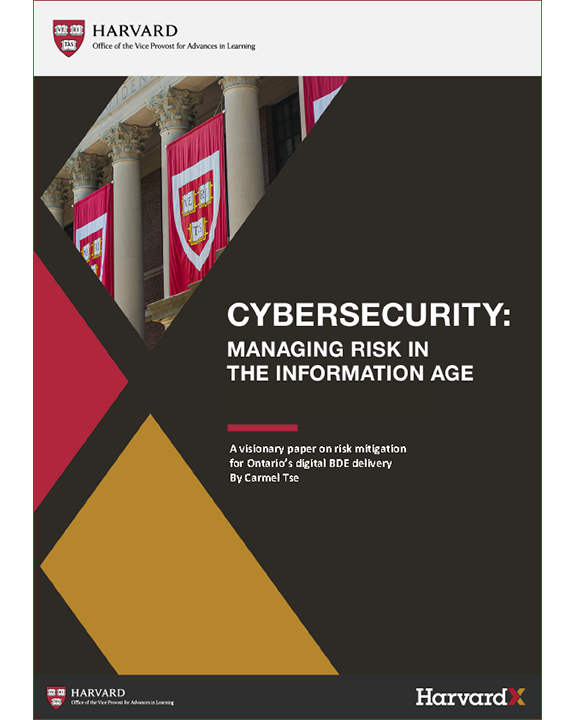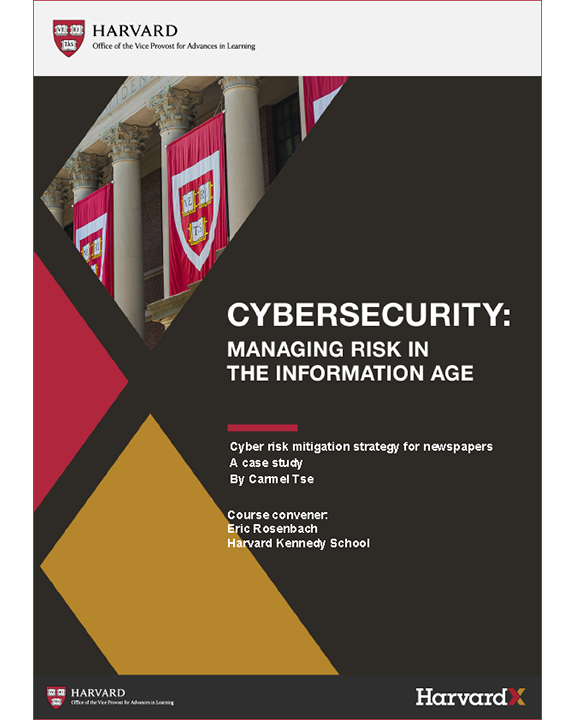UNIVERSITY OF MARYLAND LDT400
Prototyping eLearning for Beginner Driver Education

By Carmel Tse/August, 2019
University of Maryland LDT 400 Project
When Ontario announced in February, 2019 its intention to allow for the digital delivery of Beginner Driver Education, I started to prepare myself by upgrading my knowledge and skills on the latest in Learning Management Systems.
This course helped me with the discipline of building an online curriculum adhering to best practices on content development, copyright management and most importantly comparing emerging technologies offered by different vendors.
I looked at different Learning Management Systems, some of them free (usually with a catch) while others were extremely costly. Some are very good but complicated to configure.
The capstone project served me well as it gives me a prototype to explain the concept to my peers in the Canadian Automobile Association Approved Driving School Network. It also gives me a framework to build a course for regulatory approval.
UNIVERSITY OF MARYLAND LDT300
Building a crash course for driving instructors to teach online

By Carmel Tse/August, 2019
University of Maryland LDT 400 Project
This course aims to build an inventory of teaching materials for a course designed for teachers and success managers of driving instructors, connecting them with the online course they are about to teach.
The Ministry of Transportation of Ontario, the motor vehicle department of the province, has stipulated teachers delivering eLearning in driver education have to be licensed classroom driving instructors as well as certified online teachers verified through authentic assessments by bona fide academic institutions. In other words, the provincial government is saying the online certification cannot be just a weekend workshop.
There is an obvious demand for the above combined talents. The collection of artifacts in this signature project may provide a sample of teaching tools that can be packaged into a streamlined course aimed to train classroom driving instructors to be online teachers. Borrowing a time-honored pun, it’s a crash course on online teaching. The signature project may also serve as part of the proposal to a college that may wish to consider such teaching.
UNIVERSITY OF MARYLAND LDT200
Introducing driving instructors to digitial teaching

By Carmel Tse/August, 2019
University of Maryland LDT 200 Project
DEREK BOK CENTER FOR TEACHING AND LEARNING
Advocating digital delivery of driver education in Ontario

By Carmel Tse/November, 2018
Harvard Derek Bok Center
Higher Education Strategy
As a student of a course on higher education strategies at the Harvard Derek Bok Center, I leveraged my studies on teaching driver education. As a part of my capstone project and with faculty feedbacks and peer reviews, I prepared this paper as a proposal to the Ontario government to allow for the online delivery of the classroom portion of the province's Beginner Driver Education.
The proposal, started in August, 2018, was completed and submitted in November to the then Minister of Transportation Jeff Yurek who is also a Member of Provincial Parliament for Elgin-Middlesex-London. A meeting with Yurek was followed up by ministry staff. In February, 2018 Ontario announced its intention to allow for digital delivery.
Additional inputs were subsequently made, including learning outcomes, curriculum guidelines, delivery methods and cybersecurity.
In September, 2019, MTO announced that eLearning can be offered starting March, 2020.
My proposal must have not been the only one of its kind, but I believe I made a contribution.
HARVARD VPAL
Mitigating cyber risk in online Beginner Driver Education

By Carmel Tse, January, 2019
Harvard University
Office of the Vice Provost for Advances in Learning
This paper, prepared as part of an executive course at Harvard VPAL on cybersecurity, was presented to an MTO policy advisor on the cybersecsecurity aspect of beginner driver education program.
As we are about to launch a major change in driver education in Ontario, the risk of data breach is also heightening.
An online driver education program must involve the collection of a lot of private information such as data on a driver's license. Unless there are best practice guidelines, we may risk exposing the identities of novice drivers to bad actors.
A stolen identity is an identity lost forever. Cybersecurity is not just a problem for some of us some of the times, but for all of us all of the times.
Case study: Cybersecurity strategy for newspapers

By Carmel Tse, February, 2019
Harvard University
Office of the Vice Provost for Advances in Learning
The media, be it print or digital, are subject to cyber vulnerabilities on multiple fronts, more so than most other sectors. Although the media industry was not in the top six, we in the fourth estate face risks that no others would – we are seen as highly opinionated and considered to have influences. As long as we are perceived to have influences, we are threatened.
This paper was written amidst China telecom giants Huawei and ZTE were accussed of posing cybersecurity threats to U.S. national interest as 5G cellular technology is about to take off. At the same time Huawei foudner's daughter and its chief financial officer was detained by Canada at the request of the U.S. on extradition charges.
Our course convener, Eric Rosenbach of the Harvard Kennedy School, wanted us to answer the toughest questions: "What are my organization’s most important assets and how can we mitigate the risk of attack to them? When a cyberattack attack occurs, how can we implement a response plan that minimizes operational, litigation, financial, and reputational risks?" I leveraged my newspaper knowledge to build this hypothetical case study.
